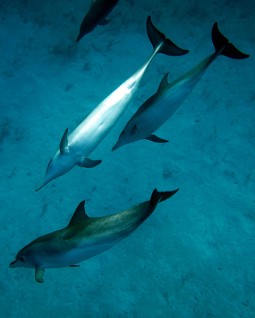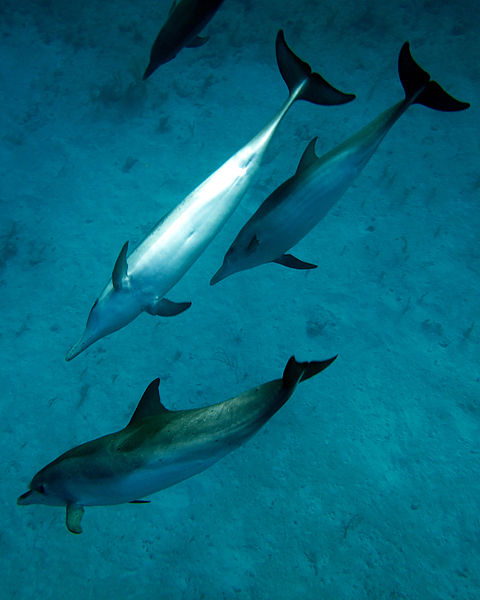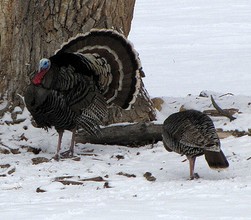 Dolphins are intelligent and communicative creatures within their own species and with the other animals native to their waters. Still, a hundred million years of evolutionary history and pressures imposed by radically different environments separate dolphins and humans. Can that enormous chasm be crossed? Can we have a conversation with an alien, a different and intelligent species? Twenty-seven years ago, Dr. Denise Herzing first slipped into the warm and clear Bahaman waters in a quest to answer those questions. And every spring since then, she has gathered the crew, the equipment, the money, the courage and the patience to return to work cooperatively with them, unfettered in the wild. Dr. Herzing believes that first we have to understand dolphin society and give them the freedom to choose to communicate with us. This week on How On Earth, Jim Pullen talks with Dr. Herzing about how she communicates with Atlantic Spotted dolphins (start at 6:48).
Dolphins are intelligent and communicative creatures within their own species and with the other animals native to their waters. Still, a hundred million years of evolutionary history and pressures imposed by radically different environments separate dolphins and humans. Can that enormous chasm be crossed? Can we have a conversation with an alien, a different and intelligent species? Twenty-seven years ago, Dr. Denise Herzing first slipped into the warm and clear Bahaman waters in a quest to answer those questions. And every spring since then, she has gathered the crew, the equipment, the money, the courage and the patience to return to work cooperatively with them, unfettered in the wild. Dr. Herzing believes that first we have to understand dolphin society and give them the freedom to choose to communicate with us. This week on How On Earth, Jim Pullen talks with Dr. Herzing about how she communicates with Atlantic Spotted dolphins (start at 6:48).
Hosts: Breanna Draxler and Beth Bartel
Producer: Jim Pullen
Engineer: Jim Pullen
Additional contributions: Shelley Schlender
Executive Producer: Joel Parker
Listen to the show:
Podcast: Play in new window | Download (Duration: 25:39 — 23.6MB)
Subscribe: RSS











